We continue this series of testimonies with Magdalena Rivas.
A Comboni Missionary Sister and nurse by profession, she tells us about her missionary experience in Chad.
We continue this series of testimonies with Magdalena Rivas.
A Comboni Missionary Sister and nurse by profession, she tells us about her missionary experience in Chad.
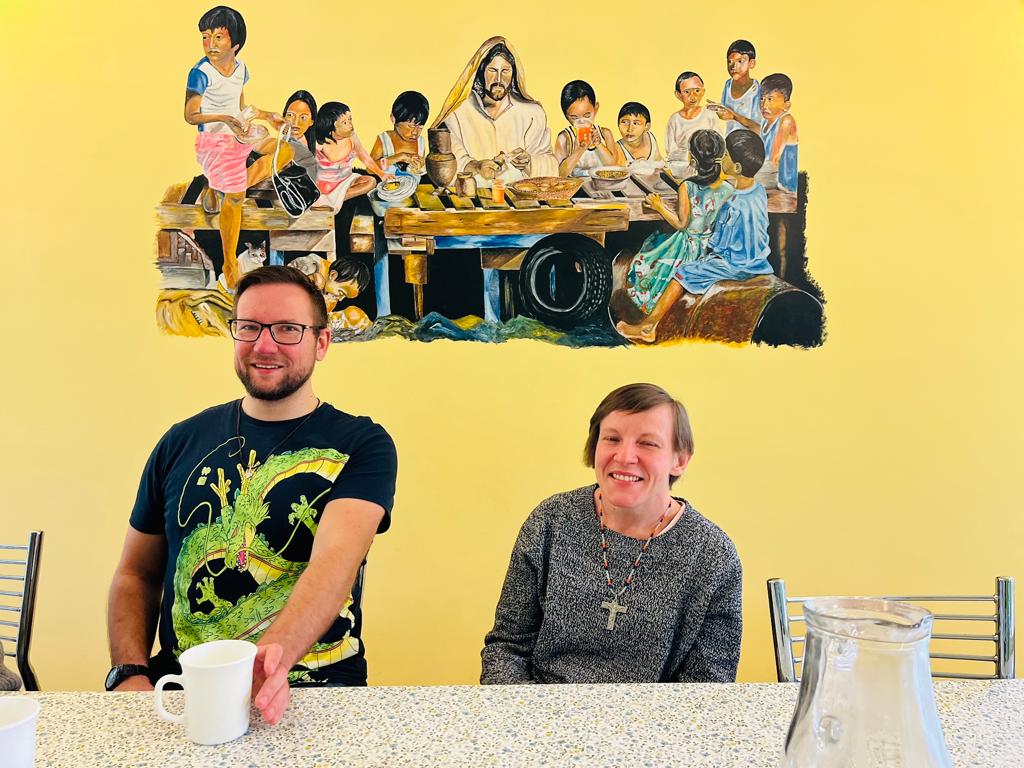
On the last weekend of September, we formed ourselves to go on missions. This is quite a nice way to start the fall: with God and with the community. There were many of us, also Comboni’s friends came. Together, we shared the missionary vocation at its various stages: we, still naive and inexperienced, those who returned with our colorful stories, and brothers, fathers, sisters moderately enthusiastic, with a healthy hint of sarcastic skepticism.
The topic of the meeting was the calling. Let’s make an agreement: discerning one’s vocation is not new. Most of us pursue a calling to the state. It was good to listen to each other’s experience. God speaks a little differently to everyone, He is amazingly creative. Let us hope that this exchange of experiences and sitting with God in the chapel will help us discover the Father’s proposals for our lives.
A special event also took place during the meeting – Edyta and Staszek, a married couple with three children, officially joined the CLM movement.
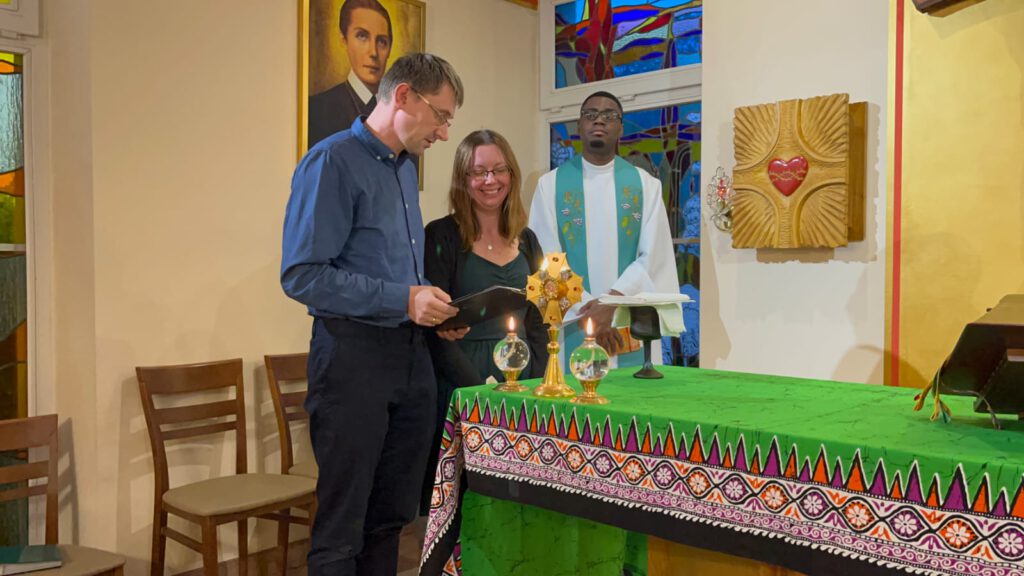
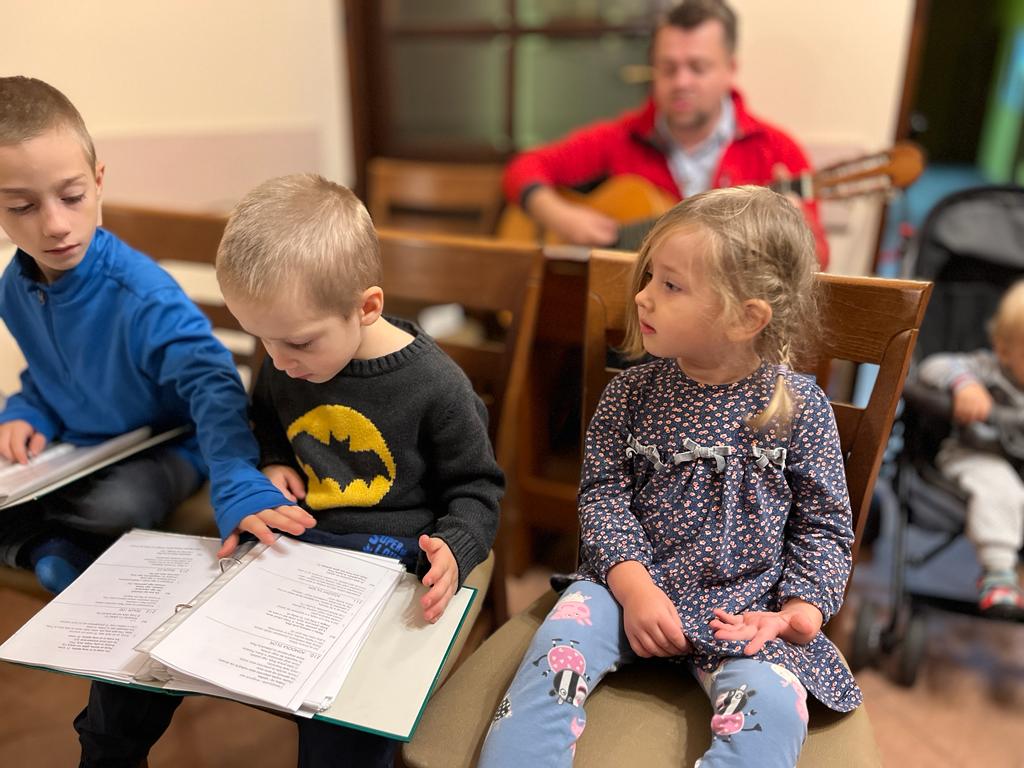
CLM candidates
Letter from the Comboni Encounter on Integral Ecology
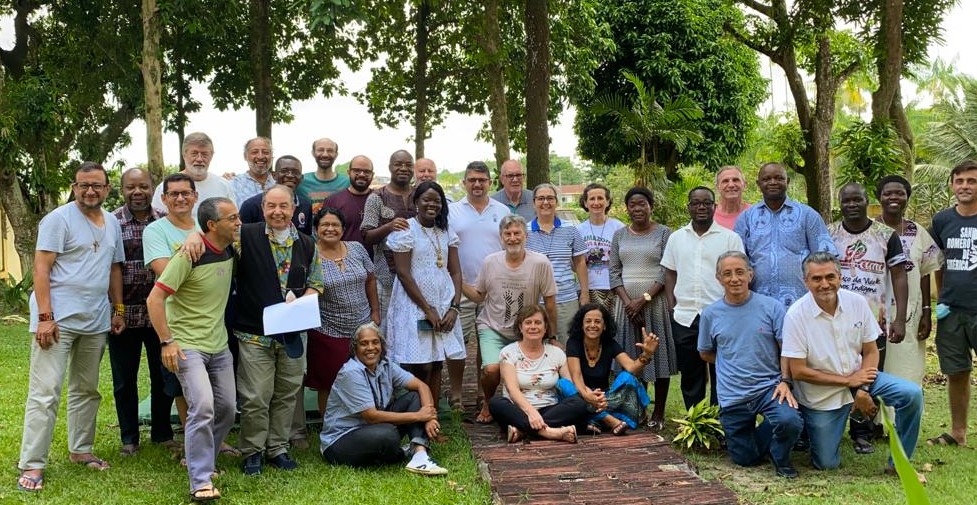
About thirty members of the Comboni Family (Lay, Secular, Religious, men and women, including three provincials) from Africa, America and Europe, we gathered from July 27 to August 3, 2022, in Belém, capital of Pará, Brazil, on the occasion of the X Pan-Amazonian Social Forum (X FOSPA) and the Comboni Meeting on Integral Ecology.
We opened our ears, hearts and minds to the groans of Mother Earth, of the Amazonian peoples and of the communities we work with, who cry out for the complete regeneration of the daughters and sons of the God of Life (cf. Rom 8, 19-23), present throughout all of Creation.
We did this in continuity with the long journey of the Comboni Forums and the mapping of social ministries in our Comboni Family and mission.
We are inspired by the spirituality of native peoples and their strong interconnection with the primary elements of the cosmos: water, rivers, air, forests, land and all beings.
Through them, Jesus of Nazareth continues to invite us to “contemplate the birds of the sky and the lilies of the field” (Cf. Mt 6, 26-28) in order to learn and assume together the Bien Vivir (Good Living).
Through attentive, respectful and compassionate LISTENING to the reality of many peoples:
1. WE SEE that the climatic, socio-environmental and political crisis – derived from the dominant and unsustainable economic model, which separates, excludes and kills – seriously endangers human survival and the full life of all Creation, in the territories where we live our vocation and mission at the service of the Kingdom.
It is the indigenous peoples, traditional communities, women and young people who still nourish hope, in their resistance, in defense of the Amazon!
2. WE UNDERSTAND that the gravity of the situation urgently demands that the Church and our Institutes initiate processes of ecological conversion.
We feel it is necessary:
3. WE PROPOSE to the coordinators of our Institutes, to the councils of the circumscriptions of all continents, to sectorial leaders and to all the members of our Comboni Family:
4. WE ASSUME, as participants in this Comboni Family Encounter and in this rich experience of listening, the commitment to:
5. WE ENTRUST all this path that we want to travel to the intercession and protection of the Martyrs of the Amazon who encourage us to radical witness and fidelity in our following of Jesus of Nazareth and in living out our charism.
From the flow of life on the banks of the Guamá River, in Belém do Pará, August 3, 2022.
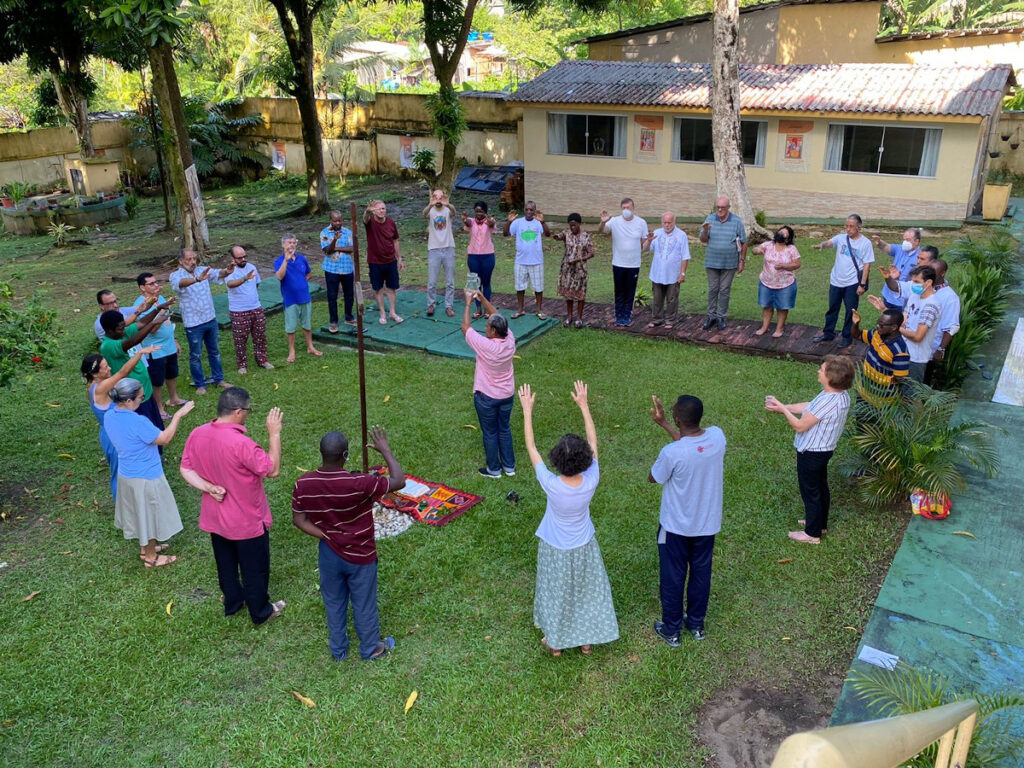
The participants of the Comboni Encounter of Integral Ecology
“I am the vine, you are the branches. Whoever remains in me and I in him bears much fruit” (Jn 15,5).
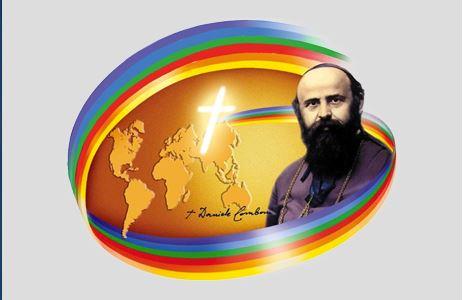
“Have courage; have courage in this difficult hour, and even more for the future.
Do not desist, never give up. Face without fear whatever storm comes.
Do not be afraid. I die but my work will not die”
(The last words of St Daniel Comboni pronounced shortly before dying on 10 October 1881)
Dear Confreres,
Happy Feast Day of our Father and Founder Saint Daniel Comboni! Fraternal greetings to you all, wherever you may be, for the celebration of this feast which is always a fount of grace, of blessing and also an opportunity to return to the source of our existential consecration according to the Comboni charism.
On 10 October 1881, like “the grain of wheat fallen on the ground …”, our Founder Father died in the land of the Sudan, but that “good seed” has sprouted and even today continues to bear much fruit! On this recurrence of his and our feast day, we cannot fail to remember the words of Father Francesco Oliboni, on 26 March 1858: “But you must not be despondent, do not turn aside from your goal, continue the work you have begun; and, even if only one of you should remain, let him never give up hope or withdraw”. These words, as we well know, have brought courage to a whole generation of missionaries to Africa, among them Comboni; and these are the same words that inspired the plea our Father and Founder made to his missionaries shortly before his death: he asks us “to be faithful to the mission”. It is this special grace of fidelity to the mission that we wish today to ask of God and of Mary, the Mother of Nigrizia.
The context of the feast of Comboni this year 2022 brings with it much grace and blessing. First of all, almost three months after the celebration of the XIX General Chapter of our Institute, today, we have officially published the Acts of the Chapter. On November 20, exactly in forty days, the beatification of Fr. Giuseppe Ambrosoli will take place in Kalongo (Uganda). Finally, in this moment of grace, the Comboni Missionaries are celebrating their General Chapter in Verona, enlivened by the sacrifice of Sr. Maria De Coppi, killed in Mozambique on 6 September. All these anniversaries are, for us, occasions of grace and growth that contribute abundantly to giving taste and the odour of holiness to the feast of St. Daniel Comboni. At the same time, they become an occasion of recollection and intense prayer to renew our Comboni identity, to build an ever more intimate relationship with our Father and Founder and with the entire mission of the Church.
The example of life of our Founding Father continually challenges us to go beyond our limits and fragility and to embrace “holiness” as a gift of God that is transformed into a way of life. Today, Comboni wants to speak to the heart of each of us with the same words with which he challenged, instructed and encouraged his missionary men and women and the laity, sometimes using sweet expressions, at other times harsh, but always with the words of a father who loves his children. Let us therefore refine our capacity to listen and open our hearts and minds to accept his words as a father so that our relationship with him may become ever deeper, more stimulating and fruitful.
On this feast day, let us dedicate some of our time to contemplate and meditate on his example of life, on his choices, on his determination; let us humbly ask for his intercession so that we too may continue to be faithful to our vocation as consecrated persons and missionaries at the service of the People of God. Let us keep our gaze always fixed on the Heart of Christ and love him tenderly so that he may continue to be the only source of our life and the driving force of our mission. Certain that without a radical return to Christ and to the charism of Comboni, our mission will not bear fruit.
Let us make our own the desire of St. Daniel Comboni that our communities may become small cenacles of apostles where brothers and sisters can meet together to celebrate, reflect and pray, in a synodal spirit, involving, where possible, the laity with whom we work in the missions and in the local Church.
Let us also ask for the intercession of St. Daniel Comboni in the process of discernment regarding the choice of circumscription superiors and their respective councils, so that God may give us holy and capable superiors, in love with the Comboni mission and the Institute, to animate and accompany the confreres and to promote and coordinate the activities/priorities of the circumscription, also bearing in mind the orientations of the XIX General Chapter.
May Mary, Mother of the Church, intercede for us.
We wish all of you a Happy Comboni Feast Day.
The MCCJ General Council
We pray for the XXI General Chapter of the Comboni Missionary Sisters that, after 150 years, transformed by the Charism, they may live as Missionary Disciples among the existential peripheries. Lord hear us.
